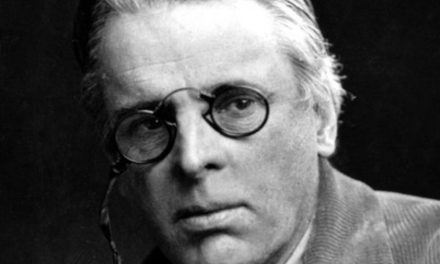VOLUME V – CHAPTER XXIII
KNOWS NOT AND KNOWS NOT HE KNOWS NOT
KNOWS NOT AND KNOWS HE KNOWS NOT

Through this you are only trying to compensate for what you lack. You are not presenting a picture of dependency. You should be like Barrack Obama picking up the best person for each job irrespective of other nationality.
You cannot be the respository of all knowledge or the citadel of wisdom. But one big mistake that many Principals commit is to pretend (as soon as they sit in the glass chamber ) to know everything, lest the staff should label him as incompetent. Incompetence is different from incompleteness. Ignorance is the father of incompetence and arrogance its first cousin:- An incompetent does not know and refuses to acknowledge his ignorance. He doesn’t have the courage to say – “I don’t Know”. The incompetent man will be afraid and wary of others so he would like to do every thing by himself – micro management and spoil every thing. But he will be good at finding scapegoats.
On the other hand an “incomplete” principal may not know but he knows that he does not know – he neither hides not is ashamed to profess the ignorance. The railway siding line will end abruptly after some distance just before the impact absorber, a few sleepers ahead, there will be a marking on a sleeper “limit ends”. The engine driver should know where his limit ends. So also the Principal should know where his limit ends – your limitations. At that point he should know to let go and allow the other person step in. Whenever any dignitary came to Tirupathi the KV Principal immediately handed over the baton to the staff – Mr. Hemadri and Mr. Chakrabani – they were excellent PRO’s. They knew all persons who mattered in the temple and made excellent arrangements for the stay, reception and dharshan by the dignitaries.
At K.V.I Tambaram, every principal utilized the services of the Primary Head mistress, Mrs.Vimala, who had wide contacts with the State Government.
~~~~~
VOLUME V – CHAPTER XXIV
ONE QUESTION SEVERAL ANSWERS
In a very beautiful article in Harvard Business Review (reproduced by “Business Today” – Deboran Ancona, Thomas W.Malone, Nanda J.Orlikoushi and Peter M.Senge have given 4 leadership qualities necessary for complete leader. These are applicable to our Principals.
- Sense making – Understanding the background of the institution and its present milieu.
- Relating – Developing relationships whitin and ourside the school
- Visioning – Projecting an arresting future of the institution before the staff
- Inventing – Conceptualising new techniques to actualise that vision
The Principal has to understand the pedagogical and technological improvements and social/cultural changes that come on in quick succession and structure his school to adopt them and go ahead.
A Social Studies teacher asked the students to prepare a map of India according to what appeals to them. They submitted political, agricultural, industrial, religious, cultural, touristic interest, scientific research, climatic, mineral resources, educational advancement (Literacy), population density, dams, airways, roadways and railways.
So one question – different types of maps, what their minds were interested their eyes saw and hands drew. Even so how we understand a situation depends on how we look at it. For one principal Mr. X, Mr. Harish may appear to be a problem teacher. For Mr. Y the same person may appear as a person with a problem. For X may adopt an aggressive authoritative approach to fix him up, to bring him into line. Mr. Y may adopt a humanitarian and psychological approach.
One principal Mr. Surya Prakash Rao was posted as principal (earlier he was PGT) to K.V. K.K.Nagar. He understood he had to learn the ropes and the tricks of the trade. So he started talking often to various Principals and requested for clarifications and suggestions for developing his school. He understood his limitations. He used to attend the Annual day, Sports day of different schools to learn how each school was organising them.
~~~~~
VOLUME V – CHAPTER XXV
ADDRESS STAFF CONCERNS WITH EMPATHY

The author had the privilege of visiting the Mayo Hospital in USA. He was attracted by the ways in which the hospital authorities made the patients stay pleasant by making the rooms and the operation theatre attractive with photos of children and mother and beautiful landscapes.
The author also requested the class teacher to make their class room attractive so that the students can learn with pleasure. Even the sick room in the school which always looks dull and drab got a nice make over.
When your way of looking at matters doesn’t match with how others (staff) do, then there arises a mismatch in relating. If you understand their difficulty and provide a solution, then there is no gap between the two rails which run parallel to each other without a meeting point. Now it becomes a mono rail. When the annual day was planned at KV AFS Avadi in Feb 1969, the teachers planned a string of programmes but which they were afraid will go up in the evening up to 8 PM. The author (Principal) spoke to the Time-Keeper of the Metro Transport Corporation who agreed to run a special service form AFS Avadi to Ambattur, after the Annual Day was over. Many staff came from Ambattur and even a few came from Madras said they can catch a local train from Ambattur to Madras and ask their husband or father to wait at Ambattur railway station. This is RELATING.
ONE WHO KNOWS (VOL 5 – CHAPTER XXIII-XXV)
– Dimensions of the Life and Work of a Principal –
556) One who knows that there is always a child in him to whom he wants to talk to and that the audience is within himself.
557) One who knows that what he lives for is to discover, to experience the new , to turn a corner, to come face to face with the unexpected
558) One who knows that his hard work my sometimes look a laundry list, because when he puts in too much, the character is lost.
559) One who knows that it is sheer arrogance to say ‘I have done it’, but it is up to others who see his work to say ‘you are an artist’
560) One who knows that he won’t become great by trying to be great, but will become great by trying to do something and then by doing it so well that greatness will come seeking him.
561) One who knows that his creativity is not going to give him power, prestige and money, but surely that it will give deep inside him the feeling that he is richest man and a sense of fulfilment.
562) One who knows that he has to learn to live with the noise, and tolerate the noise even when the noise is offensive, even when the nose is at times dangerous.
563) One who tells parents that the greatest legacy that they can bequeath to their children is not money or other fixed assets but rather a legacy of faith and character and integrity.
564) One who knows that on becoming a Principal he has done a great job of arriving in life and that he should after that do an equally great job of making his work announce it.
565) One who knows that skanda means “ coming out” / revealing” and so helps every student and student to become a “ skanda”.
566) One who knows (like Rohit Sharma) always to make a statement in an authoritative style with his presence at the crease – an eventful sojourn everyday.
567) One who knows and practices the 6 reasons for success
a) Appreciate – His single word of appreciation will boost the enthusiasm for quite sometime
b) Postpone the tendency to postpone. Forgets what has been done, but remembers what is to be done.
c) Decide to Decide
He lives by believing and not debating certain things
d) Drive away frustration. Prioritise work. Not attached to results
e) Doesn’t talk much . listens more
f) Works with others
568) One who knows that it is more important to be together with the staff and students than to be near them.
569) One who knows that between heaven and earth, where the music becomes faint, the speech freezes and the foot prints of humans are not visible, there he will find a silent guard protecting his frontiers.
570) One who knows that how he responds, when rejected for a job, a meeting, a function, to that hurt can determine how he feels about himself in th long run.
571) One who tells his staff that there are 3 types of teachers,
a) one who teaches for himself
b) one who teaches for students
c) one who teaches for himself and students
572) One who advises his staff that they should make their audio narrative appear like a visual narrative and that their job is to create a mood, an emotion and give an experience to the pupils regarding the topic taught
573) One who knows that his silent glance and polite smile may mean a lot to others, that the look will linger and becomes loaded with meaning.
~~~~~
The Jivi has come to this birth in order to reveal the splendour of the spark of Godhead which it is. The body is the wick of the lamp, yearning for God is the ghee which feeds the flame. But like the rat which, attracted by the strong smelling cheap stuff inside the trap, neglects all other articles of food in the granary and falls prey to its foolishness. Man too neglects his real sustenance and wastes his life in pursuit of mortal riches. – Sathya Sai Baba





